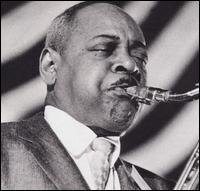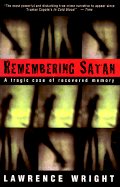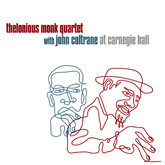The blog will never come into its own as a mode of ex-
pression unless its practitioners choose to discard some
of their cherished illusions. Not everyone can be a pun-
dit. What’s more, most of those who have already laid a
legitimate claim to the title should give it up. Being a
pundit is a horrible fate, after all, and I can’t for the life
of me figure out why so many seem so eager to pursue
it. Is it noble just to spout off? Is it a happy hobby to have
something righteous and fierce to say about every single
current event? No, it’s a trap. It’s a kind of drug for smart-
ish types–it starts out intoxicating and wonderful, but
quickly becomes a punishment you can’t quit doling out to
yourself. When you’re a pundit, every sentence you write
is a potential noose. You begin your career with breath-
taking freedom. You can be a wag, you can be a prick, you
mock the powerful and you can belittle all the awful fuck-
ers who disagree with you. This stage, fun as it may be,
ends quickly and you’re left saying the same thing over
and over and over again. It was your illusion of infalli-
bility that brought you to this point. You can say what you
like, perhaps, but you better not contradict yourself and
you better not slip out of the costume you’ve knitted for
yourself. If you’re the spiteful, brick-batty kind, you
better not want to get all winsome and thoughtful. If you
think you’re funny, you better not try to be smart or
deep or wise. If you’re painted yourself into a corner
with your all-encompassing ideology, you’ve got your
work cut out for you if you ever want to relent, recon-
sider or admit that the world is a more complex place
than an angry essay makes it.
This is why I’m whittling down my blog list, in the hopes
of replacing it with a roster of more human, personal sites.
Most "political" blogs, to me, give off the scent of dust and
rusty gears. They say the same things day-in and day-out.
They make up the same complaints, the same arguments,
even the same fucking insults. After awhile, you know
what they’ll say about any particular issue before they
vomit up their thousand words about it. These bloggers,
as if to make this shabby labor worthwhile to themselves,
try to cover over their long decay with ever-more flam-
boyant rhetoric and an overdeveloped sense of outrage.
It’s the pundits’ curse: how to be interesting after you’ve
shot your wad. You could, perhaps, grow as a writer and
tackle greater challenges. Or you could take the popular
"obnoxiousness" escape route and try to hide how dreary
your work has become with a shallow, unconvincing
show of unstinting, unshakeable self-righteousness. A
hair-trigger tendency to be annoyed replaces intellectual
curiosity and a silly faith in the rightness of your pre-
judices replaces a willingness to challenge yourself. A
blog is, in many hands, little more than a tool towards a
more secure thoughtlessness, a path back to a flat earth.
With your computer and five or six like-minded comment-
ers, the world becomes just as you like it, under your
omniscient command, and you can fight the battle for truth
and justice on terms that are all in your favor. But you’re
fooling yourself. You’re giving yourself a pacifier and you’re
giving the internet a little more noise. Its nothing to be
proud of.
I’m ecumenical about this. It’s a problem across the en-
tire political spectrum, even if it may seem more pro-
nounced in those sites that espouse a worldview I dis-
agree with.
This site, for instance, may be better than
most of its ilk, but I think it can still be used to illustrate
what I’m talking about. When its author chooses to write
about his life, or music, or other subjects that similarly
concern him, he can be engaging, thoughtful and compelling.
He is a good writer and, at times like this, he shows a true
sense of humor. However, when he’s doing what he usu-
ally does–
complaining about liberal editorials in the daily
paper or
getting peeved about the Democrat outrage du jour–his talents and sensitivity vanish in favor of what
seems to me to be knee-jerk fury. Sometimes, when I
read him in his too-common pissed-off mode, I feel that
even he is bored with the act. I’m sure he’s expressing
his beliefs honestly, but I can’t help but wonder whether
he sometimes thinks he’s dug himself into a hole. Of
course, around here the right-wing blogs are like a circle
jerk. They root for each other even when no one else
will, a built-in cheering section to make the questionable
seem obvious and the doubtful appear brave. Part of
this tendency, I think, is apparent in the way many of
these sites seem content to engage the most simplistic
and debased forms of their opponent’s arguments,
rather than the substantive and nuanced ones. It is a
simpler thing to shoot holes in a whiny screed or a
paragraph-long letter to the editor than it is to counter
the hated position itself. This blogger, at least, seems
to have the wit and ability to construct coherent, plaus-
ible and thorough positions, but he most often chooses
not to. Perhaps there isn’t a readership for it, perhaps
he doesn’t have the time. Whatever the reason, it’s a
pity. Although I vehemently disagree with him about
almost everything, I still see him as a talented person
dragged down by the norms of his chosen mode.
Just so you don’t think I’m unfairly targeting conser-
vatives, allow me to confess that I have similar feelings
for
Minnesota’s pre-eminent liberal blogger. Reading
him is, for me, an unpleasant experience. We likely
have very similar beliefs, yet his way of expressing
them is so alienating that I’d almost rather be spend-
ing my time with the collected works of Rush Lim-
baugh. When he’s not bragging about how much traffic
he gets, he’s presenting values and opinions I hold dear
in a way that too often makes them seem shallow and
contemptible. Liberalism is not hysterical. Liberalism
is not bitter. Certainly, many people think it is and their
opinions are largely reinforced by those who are happier
to rant senselessly than to put together a reasonable
protest. With him, too often bluster takes the place of
passion and grievance takes the place of analysis. Some
may mistake swagger for authority and vehemence for
conviction, but that doesn’t mean that those of us on the
left should ape them. Conservatives, I think, have been
very successful in circulating the canard that liberals are
all a bunch of touchy-feely, unreasoning, weepy panty-
waists. To counter this, many on my side of the fence
feel they need to puff their chests out, bellow a bit, and
generally make as little sense as their counterparts on
the right. It’s an understandable reaction, but a futile
one. I envy this man’s wit, writing ability, techno-
skills, and unflagging energy. His site has directed me
to very many interesting articles and websites and
for that I’m grateful. And, again, I agree with him more
often than not. I only wish he’d tone down his bellicosity
a couple notches. Being a liberal these days is pretty
much a perennial frustration, but by responding to this
with thunder and hostility, we run the risk of becoming
even more marginalized. This is not fair, I’m afraid, but
it’s the hand we’ve been dealt. We can either blow it or
make the best of it. We’ve been doing the former for far
too long, I think.
The sad fact is that very few of us have important things
to say every single day of the week. The stress that comes
from trying to do this results in even the best bloggers be-
coming caricatures of themselves. There is, I feel, a sinister
ease in fuming about the daily headlines. It might even be
therapeutic. But this is deceptive. Nothing goes forward,
it’s all indulgence and animosity. There’s no dialogue, except
between people who think alike and the occasional troll com-
ing along to steal some attention for him/herself. The form
is a dead end for most, giving them something to do but
nothing to think about, an outlet but not a true forum. The
funny thing is that most bloggers collaborate in their own
irrelevance. They get a website where they can say
any-thing they want and be read, theoretically, by
anyone in
the world. And what do they do? They play-act like Al
Franken or Sean Hannity, they spend their leisure time
battling strangers over differences in opinion. It would
better, I think, if we could accelerate time to the point
where this enthusiasm has worked itself out of our na-
tures and we use this tool for better purposes. Sharing
gardening techniques, for instance. Or maybe porno-
graphy. If we all were expected to have our own porno
blogs, I imagine most of us would become much more
circumspect and, perhaps, much more creative.
Anyway, when I read a blog, I’m no longer looking for
someone to express my opinions more frothily than I
can. I’m comfortable in my opinions and I have no need
for them to be reinforced a hundred times every evening.
Nor am I looking for someone to tell me what to think. I
consider myself a reasonably intelligent person: I can
make up my own mind about whatever is happening on
any particular day. I don’t need a guru or a daily talking-
points reminder. What I want instead is someone who
can tell me stories, factual or otherwise, that I haven’t
heard before. Someone who has a unique perspective
on something, whether I wind up endorsing that per-
spective or not, is more valuable to me than someone
who can be snarky at the drop of a hat. I’m interested
in those who have a position that gives them access to
facts and experiences that I am not able to get to as
easily. A stripper who has funny stories about her
clients or a mortician relating their workday travails
is far more fascinating to me than yet another guy who’s
pissed off about George Bush or Howard Dean. I think,
truly, that most people on the internet have something
interesting to say. If--for whatever reason--they refuse
to say it, nine times out of ten you’ll find them in some
dank corner of the web, trying to work up the will to
jump back into the stupid fray that the world becomes
through their computer screen.





